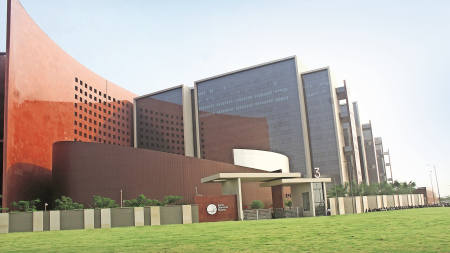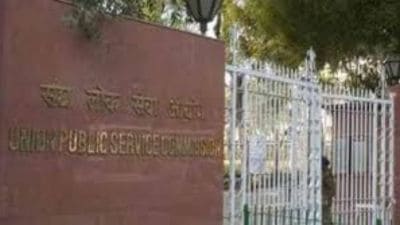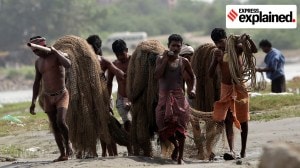- India
- International
To keep tribal students from leaving school, Amravati, Ahmednagar roll out workbooks
In late March, their ashram shalas (residency schools for tribal students) had shut down unceremoniously along with other schools across the state after the imposition of a nationwide lockdown amid the Covid-19 pandemic.
 The workbooks focus mainly on language, math and science rolled into one.
The workbooks focus mainly on language, math and science rolled into one.
In the last week of April and early May, tribal students in Amravati district were visited by unexpected guests – their teachers.
The teachers hadn’t come to conduct a class, but to deliver a parcel – a workbook that promised to be fun. This object of curiosity had puzzles, a few quizzes and some activities that would prod them to hunt for answers in their surroundings.
In late March, their ashram shalas (residency schools for tribal students) had shut down unceremoniously along with other schools across the state after the imposition of a nationwide lockdown amid the Covid-19 pandemic.
For day 1, those in classes III to VI were asked to study three trees in their village, write down their names in Korku (indigenous language spoken in the region) and Marathi, and the unique characteristics of each tree. The second activity promised a picture after joining of numbered dots. The content centered around math and English. Those in classes VII to X were given another workbook.
There on, nearly 7,000 students across 20 ashram shalas in the district made such workbooks a part of their routine. The outcome of this was continuation of learning, and self study. In case they had any difficulty in navigating through a task, the students were encouraged to call their teachers or seek help of elders and their seniors in higher classes.

“Most tribal children grow up getting ready for cities, not villages. But their learning needs to be customised according to their needs,” said Mitali Sethi, Project Coordinator and Amravati Sub-Divisional Magistrate.
“We wanted to make learning inclusive by bridging the Internet divide, and by keeping it uncomplicated. Online education model is not suitable to this area. While creating these workbooks, our goal was to promote reading and foundational literacy,” she added.
The two workbooks ensured that children retain the basic concepts amid the uncertainty regarding the physical reopening of schools. Two months down, this medium of administering education has paved the way to a large scale project titled ‘Unlock Learning’ that is slated to be implemented across all ashram shalas in Maharashtra. The state has 1,060 ashram shalas where 4.2 lakh tribal students study.
Teachers at Rajur in Ahmednagar district were the next in line in taking Amravati’s model a step further. The workbooks they created targeted two classes at a time – classes III and IV, classes V and VI, classes VII and VIII and classes IX and X. While there is no workbook for Class I, Class II students have been given a workbook exclusive to their needs.
“The idea was to help students recall what they had learnt previously and to upgrade that level a notch further,” said Extension Officer Navnath Gaikwad. The workbooks, which focused mainly on language, math and science rolled into one, were given to 4,919 students across the 20 ashram shalas in the district in the first week of June.
“We’ve often seen how children lose touch with what they have learnt when they don’t stay connected to education. So, we used the funds available with the school management committees and printed the workbooks to give them to the students for free,” said Gaikwad. Now, teachers make weekly visits to the villages to monitor the children’s progress.
In June, the department had set up a core committee of 20 educational consultants, who vetted the contents of the workbooks created by the Rajur team, and formally approved them for the first phase of the project. A separate “co-curricular activity book”, focusing on arts, craft and music, has also been designed by the department, said teacher and coordinator Amruta Bhalerao.
A formal launch of this project could be announced on August 9 – on World Adivasi Day, said Commissioner (Tribal Development) Dr Kiran Kulkarni.
“Tribal contextualisation was a major challenge for the department. In this initiative, we have permitted project officers the liberty to customise the books and add contents as per the regional, geographical and cultural diversity of their region, even involving the tribal language prevalent in their parts,” Kulkarni added.
Buzzing Now
Apr 16: Latest News
- 01
- 02
- 03
- 04
- 05






































